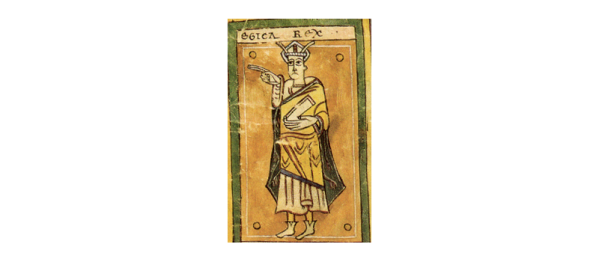The execution of the Stratford Martyrs on June 27, 1556, stands as a poignant episode in the turbulent history of the English Reformation. This event marked the brutal suppression of Protestant dissent during the reign of Queen Mary I, a period characterized by intense religious persecution. The Stratford Martyrs were a group of eleven men... Continue Reading →
The Arrest of the Pope
On June 17, 653, the arrest of Pope Martin I marked a pivotal moment in the history of the Catholic Church. This dramatic event was deeply intertwined with the theological and political tensions of the time, shedding light on the complex relationship between the Papacy and the Byzantine Empire. Pope Martin I ascended to the... Continue Reading →
John Hale
John Hale was born on June 3, 1636, in Charlestown, Massachusetts Bay Colony. He grew up in a Puritan family during a time when the Massachusetts Bay Colony was still in its early years, struggling to establish a society based on their religious ideals. His early life was steeped in the Puritan tradition, with a... Continue Reading →
Booth Led Boldly With His Big Bass Drum
William Booth, born on April 10, 1829, in Nottingham, England, was a prominent preacher and the founder of The Salvation Army, a Christian denominational church and international charitable organization known for its widespread social services. Booth's life and legacy are a testament to his deep commitment to faith, social reform, and philanthropy. William Booth embarked... Continue Reading →
Expelling Anne Hutchinson
Anne Hutchinson was a pioneering figure in early American history, whose beliefs and actions challenged the rigid Puritanical norms of her time, particularly within the Massachusetts Bay Colony. Born Anne Marbury in Alford, Lincolnshire, England, in 1591, she was the daughter of Francis Marbury, a clergyman and school teacher known for his own dissent against... Continue Reading →
The Bonfire of the Vanities
Girolamo Savonarola, a Dominican friar whose name is synonymous with religious fervor, reform, and the Bonfire of the Vanities, was a complex figure whose life story is interwoven with the fabric of Renaissance Italy. Born on September 21, 1452, in Ferrara, Italy, Savonarola emerged as one of the most influential and controversial religious leaders of... Continue Reading →
Burned At The Stake
John Rogers. The name might not ring as loudly in the corridors of history as some of his contemporaries, but let me tell you, his story is one steeped in drama, religious fervor, and a tragic end that echoes through the annals of English history. You see, John Rogers was the first Protestant martyr to... Continue Reading →
Thomas Beckett
Thomas Becket, born around 1120 in Cheapside, London, rose from a merchant's son to one of the most powerful figures in England. Educated in Paris, Bologna, and Auxerre, Becket's intellectual prowess and charisma caught the attention of Theobald of Bec, Archbishop of Canterbury, who appointed him Archdeacon of Canterbury. His ascendance reached its zenith when... Continue Reading →
Westminster Abbey
Westminster Abbey stands as an iconic testament to English history, architectural grandeur, and religious significance. Consecrated on December 28, 1065, this majestic structure has been intertwined with the spiritual, cultural, and political life of England for nearly a millennium. The Abbey, originally known as the Collegiate Church of St Peter at Westminster, was consecrated just... Continue Reading →
Merry Christmas
Christmas, a holiday marked by millions worldwide, not only represents a religious day significant to Christianity but also encompasses a wide array of cultural traditions. The evolution of Christmas from a modest religious feast to a global phenomenon reflects the complex interplay of religion, culture, and history. The selection of December 25th as the date... Continue Reading →
Egica’s Accusation
The Seventeenth Council of Toledo convened on November 9, 694, under the Visigothic King Egica. It was Egica's third council, and like the Sixteenth, it was primarily directed against the Jews, reflecting Egica's profound mistrust and dislike for them. Egica opened the council by claiming that Iberian Jews were conspiring with their overseas counterparts to... Continue Reading →










